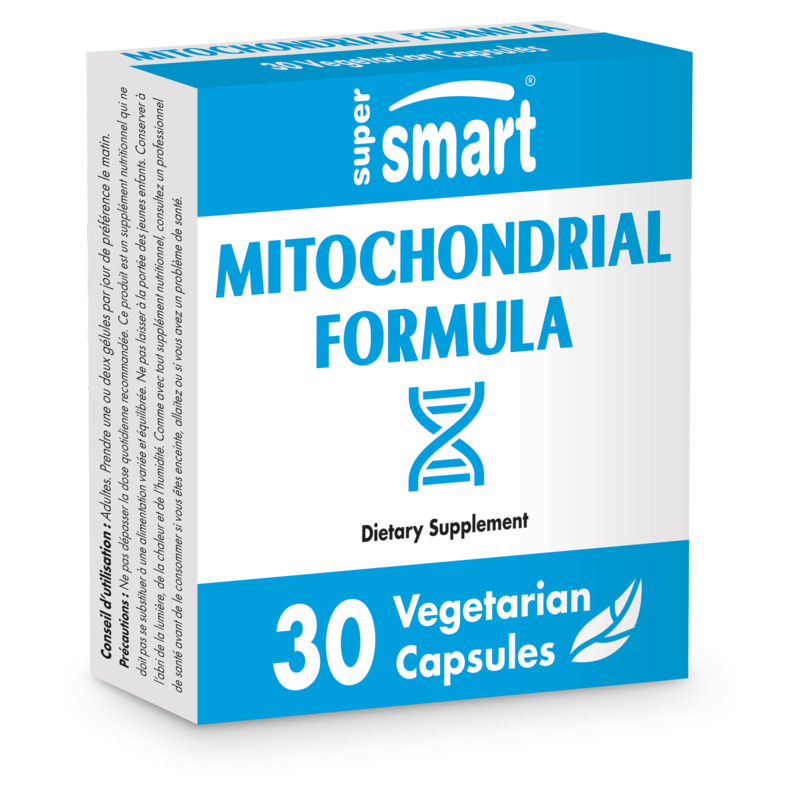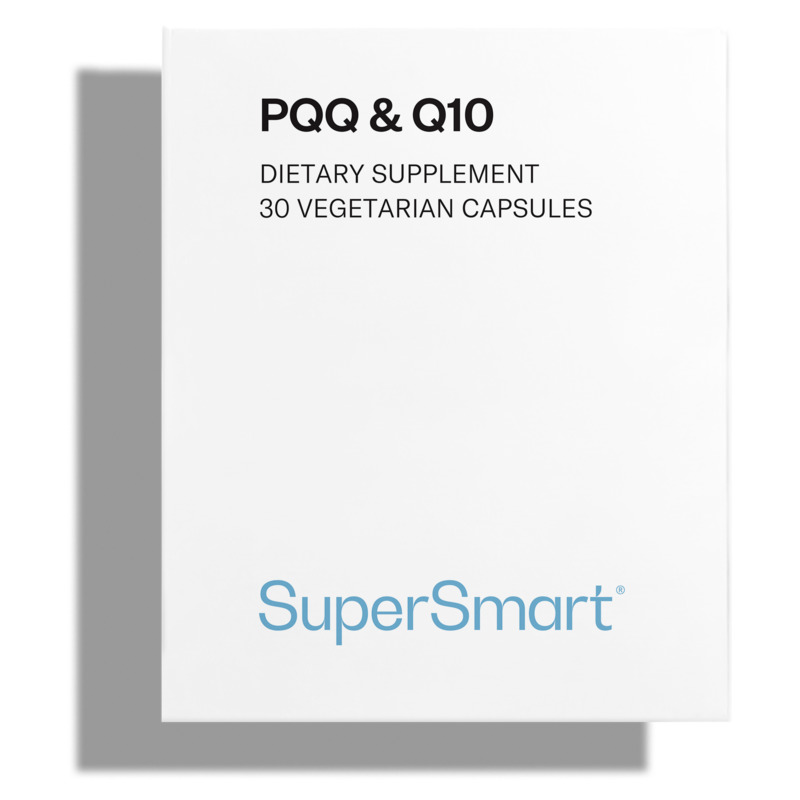In the realm of nutritional science, Pyrroloquinoline Quinone (PQQ) is gaining significant attention for its remarkable health benefits. This compound, often dubbed a “miracle molecule,” is naturally found in a variety of foods, ranging from kiwifruits to green tea.
PQQ plays a pivotal role in cellular energy production and supports mitochondrial health, which is essential for overall well-being.
Its importance in nutritional science cannot be overstated, as it contributes to enhanced cognitive function, better metabolism, and increased longevity.
As researchers continue to uncover the vast potential of PQQ, its integration into health and wellness regimes is expected to revolutionize the way we approach nutrition and disease prevention.
Contents
- 1 Health Benefits of PQQ
- 2 PQQ in Nutritional Science
- 3 Innovative Health Applications
- 4 Market Potential of PQQ
- 5 Challenges in PQQ Development
- 6 Scientific Research on PQQ
- 7 PQQ and Aging
- 8 Cognitive Health and PQQ
- 9 PQQ and Cardiovascular Health
- 10 Immune System Support
- 11 Frequently Asked Questions
- 12 Products
- 13 Sources
Health Benefits of PQQ
Cognitive Enhancement
The potential of Pyrroloquinoline Quinone in enhancing cognitive function is an exciting area of research. Although specific studies are limited, initial findings suggest that PQQ may support brain health by promoting neuroprotection and improving memory. For those interested in exploring PQQ’s cognitive benefits further, accessing scientific journals and academic databases is recommended.
Mitochondrial Support
PQQ is renowned for its role in supporting mitochondrial function, which is crucial for energy production within cells. Mitochondria are the powerhouses of our cells, and PQQ’s ability to enhance their health can lead to:
- Increased energy levels
- Improved sleep quality
- Potential protection against conditions like mental decline and heart disease
While promising, further human studies are necessary to fully understand these benefits.
Antioxidant Properties
PQQ’s antioxidant properties are well-documented, offering protection against oxidative stress-induced damage, such as lipid peroxidation. However, PQQ’s dual nature means it can also act as a pro-oxidant under certain conditions. Key benefits include:
- Protection against oxidative damage in cells
- Potential alleviation of age-associated oxidative stress
Understanding PQQ’s context-dependent reactivities is essential for maximizing its health benefits.
PQQ in Nutritional Science
The role of Pyrroloquinoline Quinone in nutritional science is increasingly recognized for its contribution to cellular health and energy metabolism. As a vitamin-like compound, PQQ is found in foods like spinach, kiwi, and green tea, offering powerful antioxidant effects that protect nerve cells from damage and support mitochondrial function. This function is vital as mitochondria are the energy powerhouses of our cells, and PQQ aids in the development of new mitochondria, essential for efficient energy production.
Recent studies have shown promising results regarding PQQ’s impact on energy metabolism. In a study published on PubMed, researchers examined the effects of PQQ supplementation on aerobic exercise performance and mitochondrial biogenesis in untrained males. Participants consumed either 20 mg/day of PQQ or a placebo over six weeks. While the study did not find significant differences in aerobic performance, PQQ supplementation did lead to a noticeable increase in PGC-1α protein levels, a key marker for mitochondrial biogenesis.
| Study Parameter | PQQ Group | Placebo Group |
| PGC-1α Protein Levels | Increased | No Change |
| Aerobic Performance | No Significant Improvement | No Significant Improvement |
These findings highlight PQQ’s potential in enhancing cellular energy processes, though more research is needed to fully understand its implications. This growing body of research suggests that PQQ could play a significant role in future health innovations, particularly in the realm of cellular and metabolic health.
Innovative Health Applications
Pyrroloquinoline Quinone (PQQ) is carving a niche in the health and wellness industry, particularly through its incorporation in dietary supplements. Known for its potent antioxidant properties and ability to enhance mitochondrial activity, PQQ is now a staple in the nutraceutical sector. These supplements are becoming increasingly popular among health enthusiasts seeking to boost cellular health and energy levels.
Incorporation in supplements is just the beginning. PQQ’s versatility extends to its potential in managing chronic diseases. While definitive studies are still underway, preliminary research suggests that PQQ could play a role in treating metabolic disorders and neurodegenerative conditions due to its support for mitochondrial function.
Looking ahead, the potential applications of PQQ in health innovations are promising:
- Development of targeted therapies for cardiovascular diseases.
- Exploration of its role in preventing or slowing the progression of neurodegenerative diseases.
- Integration into skincare products for its antioxidant benefits.
As consumer awareness grows, so does the demand for PQQ in various industries, including pharmaceuticals and cosmetics. The market is poised for growth, driven by advancements in production techniques and a deeper understanding of PQQ’s health benefits. This trajectory not only highlights PQQ’s current significance but also underscores its potential to transform future health innovations.
Market Potential of PQQ
The Pyrroloquinoline Quinone market is on an impressive growth trajectory, valued at USD 91.2 billion in 2023. Projections estimate it could soar to USD 192.06 billion by 2031, reflecting a robust CAGR of 8.5% from 2024 to 2031. This growth is fueled by several dynamic market drivers.
One of the key trends driving this expansion is the increasing health consciousness among consumers. As people become more aware of their health and well-being, there is a rising demand for PQQ-infused cosmetics and nutritional products. The diverse applications of PQQ, ranging from skincare to pharmaceuticals, further bolster its market presence.
Moreover, the aging population is significantly impacting market dynamics. Elderly consumers are increasingly seeking products that support cognitive function and vitality, making PQQ a sought-after ingredient in dietary supplements. Ongoing research and development into PQQ’s benefits continue to expand its application potential, attracting investment and spurring market interest.
Technological innovations and enhanced production processes also play a crucial role in market growth. As more PQQ-based products, from standalone supplements to functional foods, become available, the market caters to diverse consumer preferences. These factors collectively suggest a promising future for PQQ, presenting lucrative opportunities for stakeholders in the health and wellness sector.
Challenges in PQQ Development
The promising growth of the Pyrroloquinoline Quinone market is not without its hurdles. Two primary challenges stand out: regulatory hurdles and production costs. As the demand for PQQ-infused products rises, navigating these obstacles is crucial for sustained market expansion.
Regulatory hurdles are a significant concern, especially as PQQ gains traction across various sectors, including pharmaceuticals and dietary supplements. Different countries have varying regulatory frameworks, which can complicate the approval process for new products. Companies must ensure compliance with these regulations, which often requires extensive documentation and testing to verify safety and efficacy. Streamlining these processes through strategic partnerships with regulatory bodies can facilitate smoother market entry.
Another notable challenge is the production costs associated with PQQ. The complex synthesis and extraction processes can be expensive, impacting the overall cost of PQQ-based products. However, technological innovations in production methods offer a potential solution. By investing in research and development, companies can explore more cost-effective production techniques, thus reducing expenses while maintaining product quality.
Overcoming these challenges requires a combination of strategic innovation and collaboration. As companies navigate regulatory landscapes and optimize production, the PQQ market is poised to continue its upward trajectory, promising exciting opportunities for stakeholders in the health and wellness industry.
Scientific Research on PQQ
Recent scientific studies have shed light on the promising potential of Pyrroloquinoline Quinone in advancing nutritional science and health innovations. As researchers delve deeper into PQQ’s properties, several key findings have emerged, highlighting its role in promoting healthy aging and cellular function.
- Study Overview: One notable study involved naturally aged C57BL/6J male mice. These mice were given dietary PQQ supplementation of 20 mg/kg/day over ten weeks. This research aimed to explore PQQ’s ability to prevent aging progression and its underlying molecular mechanisms.
- Key Findings:
- PQQ supplementation improved metabolic dysfunction and enhanced small intestinal performance in aged mice, thus alleviating malnutrition effects.
- It prevented rapid body fat loss, reduced muscle atrophy and weakness, and improved skin conditions.
- In a D-galactose-induced cell aging model, PQQ enhanced mitochondrial function, reduced oxidative stress, and improved cell differentiation and proliferation.
- PQQ also improved intestinal barrier function by increasing cell proliferation in treated intestinal epithelial cells.
The study suggests that PQQ can hinder the aging process by enhancing mitochondrial function, reducing oxidative stress, and improving overall cellular health. These findings underscore the potential of PQQ as a valuable nutritional supplement in promoting healthy aging and longevity, particularly in addressing muscle atrophy and malnutrition associated with aging. As the research community continues to explore PQQ’s capabilities, its future in health and nutritional science appears promising.
PQQ and Aging
Pyrroloquinoline Quinone has emerged as a potent ally in the fight against aging, with research highlighting its impressive impact on lifespan and longevity. In animal studies, particularly involving worms, PQQ supplementation extended lifespan by approximately 30%. This significant finding underscores PQQ’s potential as a longevity nutrient.
The anti-aging properties of PQQ are largely attributed to its role in mitochondrial health. Mitochondria, often referred to as the “powerhouses” of cells, are crucial for energy production and cellular function. As we age, mitochondrial efficiency declines, leading to various health issues. PQQ addresses this by promoting the formation of new mitochondria, enhancing their efficiency, and mitigating age-related degeneration.
In addition, studies involving human cells have shown that PQQ can delay cellular senescence, a key contributor to aging. By inhibiting harmful signaling pathways associated with chronic inflammation, known as “inflammaging,” PQQ helps to slow down aging processes. This positions it as a promising candidate for increasing healthspan and lifespan.
Overall, PQQ’s ability to enhance mitochondrial function, reduce inflammation, and protect against oxidative stress makes it a compelling addition to an anti-aging regimen. As research continues, PQQ’s role in promoting youthful vitality and extending healthy lifespan becomes increasingly evident, marking a new frontier in nutritional science and health innovations.
Cognitive Health and PQQ
Memory Enhancement
Pyrroloquinoline Quinone is gaining attention for its potential role in enhancing memory and cognitive function. As a vitamin-like compound, PQQ supports the health of mitochondria, which are essential for maintaining optimal brain health. Mitochondria are critical for energy production and are crucial for cognitive processes. By enhancing mitochondrial efficiency and promoting the formation of new mitochondria, PQQ has been linked to improved cognitive performance, including memory enhancement.
Research suggests that PQQ may increase the levels of nerve growth factor (NGF), a protein vital for the growth, maintenance, and survival of neurons. This, in turn, aids memory retention and learning abilities. Additionally, PQQ’s ability to increase levels of PGC-1 alpha has been associated with improved mitochondrial function, which supports sustained cognitive health.
Neuroprotection
PQQ is also renowned for its neuroprotective properties. It offers protection against neurodegenerative diseases such as Alzheimer’s and Parkinson’s by reducing oxidative stress and inflammation, factors that can lead to neuronal damage. PQQ’s antioxidant capabilities further protect nerve cells from damage, potentially reducing the risk of cognitive decline.
Moreover, studies have shown that PQQ can help in reducing brain damage post-stroke, highlighting its potential in maintaining brain health and function. These neuroprotective benefits make PQQ a promising candidate for supporting cognitive health and preventing age-related cognitive decline.
PQQ and Cardiovascular Health
Pyrroloquinoline Quinone is making waves in nutritional science, particularly for its potential benefits for cardiovascular health. The heart, a muscle that never rests, requires robust support to maintain its function. PQQ, with its unique properties, emerges as a promising ally in promoting heart health.
One of the primary benefits is its ability to reduce oxidative stress, a significant contributor to cardiovascular diseases. Oxidative stress can lead to inflammation and damage to heart tissues, paving the way for conditions like heart attacks and strokes. By mitigating oxidative damage, PQQ helps maintain the heart’s structural and functional integrity.
Moreover, research underscores PQQ’s role in enhancing mitochondrial efficiency. Improved mitochondrial function translates to better energy production, which is vital for the heart’s continuous operation. Studies have indicated that PQQ can enhance heart function by boosting mitochondrial biogenesis and reducing oxidative stress levels in diabetic conditions. This dual action not only supports heart health but also aligns with broader anti-aging benefits.
With its ability to bolster mitochondrial health and alleviate oxidative stress, PQQ is positioned as a valuable component in cardiovascular support. As research continues, its potential applications in heart health could revolutionize how we approach cardiovascular wellness in the future.
Immune System Support
Incorporating Pyrroloquinoline Quinone (PQQ) into nutritional science is revealing promising pathways for enhancing immune system support. As a nutrient, PQQ plays a pivotal role in boosting the immune response, which is crucial in today’s health-conscious world. Its ability to enhance mitochondrial health extends to the immune cells, ensuring they function at their peak efficiency.
PQQ’s efficacy in promoting immune health lies in its antioxidant properties. By reducing oxidative stress, it fortifies the immune cells against damage, allowing them to respond effectively to invading pathogens. This protection is vital in maintaining a robust immune defense, especially as we age and our natural immune responses begin to wane.
Research has shown that it can significantly enhance the production of key immune cells such as T-cells and macrophages. These cells are essential for identifying and neutralizing harmful pathogens, making PQQ a potential ally in the fight against infections. For example, in preclinical studies, PQQ’s impact on immune function has been evidenced by a more resilient response to bacterial and viral challenges.
In summary, PQQ shows substantial promise in supporting immune health. By improving cellular energy and reducing stress factors, it helps create a more dynamic and responsive immune system, which is essential for overall health and well-being. As nutritional science continues to evolve, PQQ’s role in immune support is likely to become even more significant.
Frequently Asked Questions
As interest in PQQ continues to grow, many people have questions about its usage and potential benefits.
Here, we address some of the most common queries.
Q: What is PQQ and how is it used?
PQQ, or pyrroloquinoline quinone, is a nutrient that supports mitochondrial health and has been linked to various health benefits. It’s commonly available in supplement form and is used to enhance energy, improve cognitive function, and support overall cellular health.
Q: Is PQQ safe to use?
Yes, it is generally considered safe for most people. It’s a naturally occurring compound found in foods such as kiwi, green peppers, and fermented soy. However, it’s always advisable to consult with a healthcare provider before starting any new supplement regimen, especially if you have underlying health conditions or are pregnant.
Q: How effective is PQQ in improving health?
Research suggests that it is effective in promoting mitochondrial health, boosting energy metabolism, and supporting cognitive and cardiovascular health. Studies have shown it can extend lifespan in animal models and may offer similar benefits in humans by reducing oxidative stress and inflammation.
Q: Can PQQ help with aging?
Yes, it has been linked to anti-aging effects. It helps stimulate the creation of new mitochondria and reduces chronic inflammation, which are key factors in slowing down the aging process. Regular supplementation could potentially preserve youthful cellular functions.
These insights into PQQ underscore its potential as a pivotal player in the future of nutritional science and health innovations. As research continues, our understanding of its benefits will undoubtedly expand.
Products
| PQQ supplements from Amazon |
| PQQ supplements from Ebay |
PQQ & CoQ10 30 Veg Caps by Solaray |
Sources
Here are authoritative medical sources on Pyrroloquinoline Quinone , each with a direct link and a brief summary:
-
Pyrroloquinoline Quinone (PQQ): Its Impact on Human Health and Potential Benefits
This review discusses PQQ’s antioxidant properties and its potential roles in improving metabolic flexibility, neuroprotection, and cardiovascular health. -
Pyrroloquinoline-Quinone Is More Than an Antioxidant: A Vitamin-Like Accessory Factor Important in Health and Disease Prevention
This article explores PQQ’s involvement in mitochondrial biogenesis, growth, and aging, highlighting its potential as a therapeutic nutraceutical. -
Effect of the Antioxidant Supplement Pyrroloquinoline Quinone Disodium Salt (BioPQQ™) on Cognitive Functions
A clinical study indicating that PQQ supplementation may enhance cognitive functions, particularly attention and working memory, in elderly individuals. -
Effect of Dietary Pyrroloquinoline Quinone Disodium Salt on Cognitive Function in Healthy Volunteers: A Randomized, Double-Blind, Placebo-Controlled, Parallel-Group Study
This study demonstrates that PQQ supplementation can improve memory, attention, and cognitive flexibility in middle-aged to elderly individuals. -
Metabolic and Biochemical Effects of Pyrroloquinoline Quinone Supplementation: A Narrative Review
This review provides an overview of PQQ’s anti-inflammatory and antioxidant properties, focusing on its potential role in addressing metabolic disorders. -
Effects of Pyrroloquinoline Quinone (PQQ) Supplementation on Aerobic Performance and Mitochondrial Biogenesis
A study examining how PQQ supplementation influences mitochondrial biogenesis and aerobic performance in non-endurance-trained males. -
Pyrroloquinoline Quinone to Reduce Fat Accumulation and Ameliorate Obesity Progression
This article reviews studies suggesting that PQQ may help reduce visceral and hepatic fat accumulation, contributing to obesity management. -
The Impact of Six-Week Dihydrogen-Pyrroloquinoline Quinone Supplementation on Brain-Derived Neurotrophic Factor Levels and Cognitive Function
A study indicating that PQQ supplementation may elevate serum BDNF levels and enhance certain cognitive functions in individuals with mild cognitive decline. -
Recent Progress in Studies on the Health Benefits of Pyrroloquinoline Quinone
This review highlights PQQ’s potential health benefits, including growth promotion, anti-diabetic effects, antioxidant action, and neuroprotection. -
Pyrroloquinoline Quinone Prevents Cognitive Deficit Caused by Oxidative Stress in Rats
An animal study demonstrating that PQQ supplementation can prevent cognitive deficits induced by oxidative stress, suggesting its neuroprotective properties.


